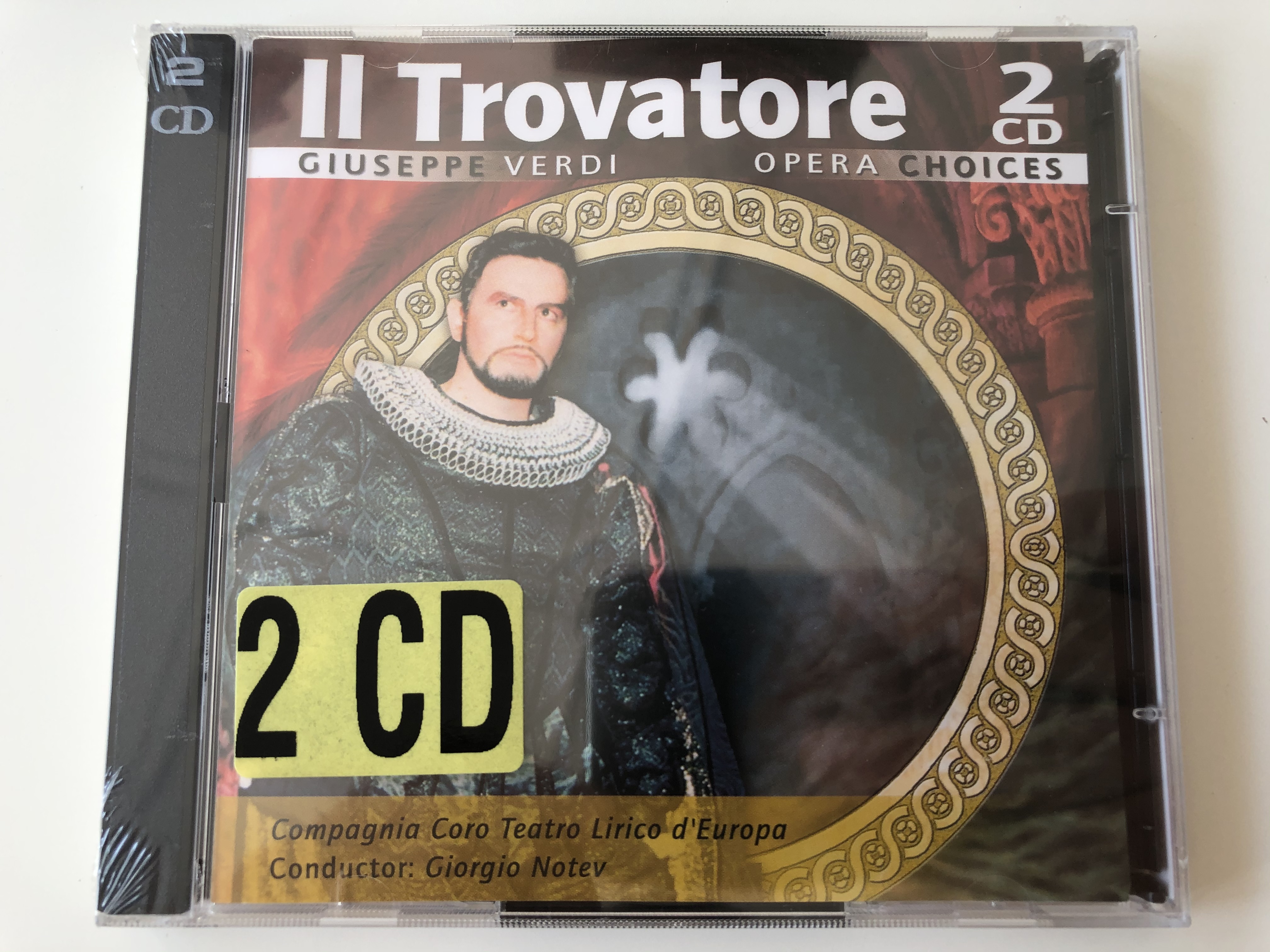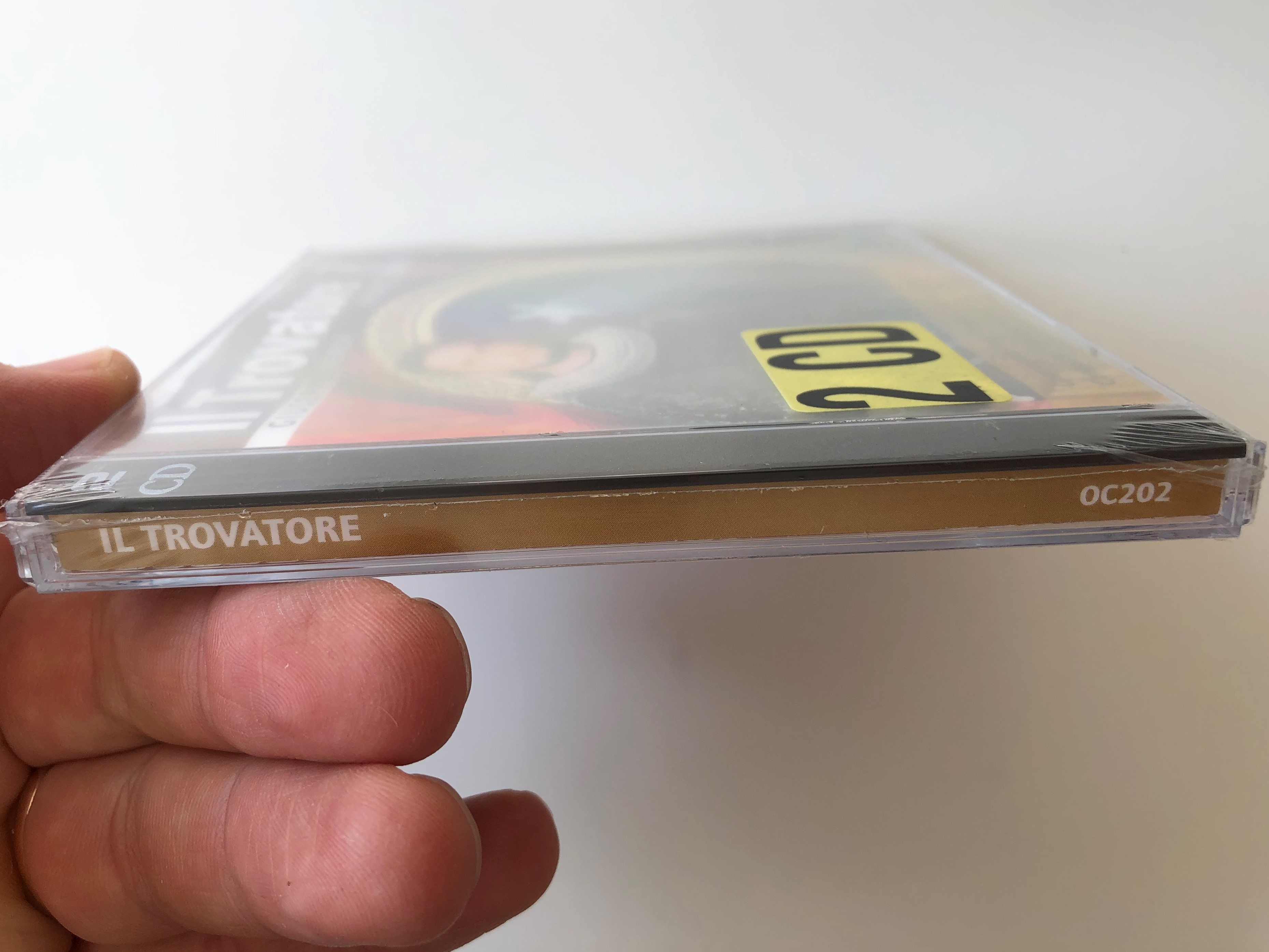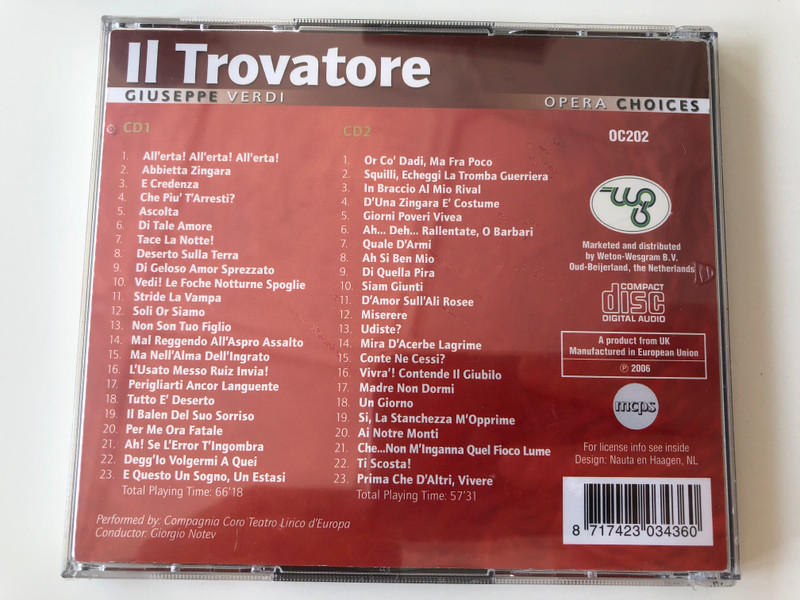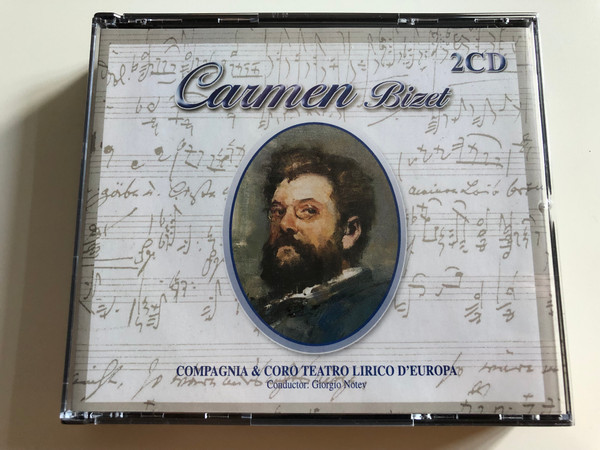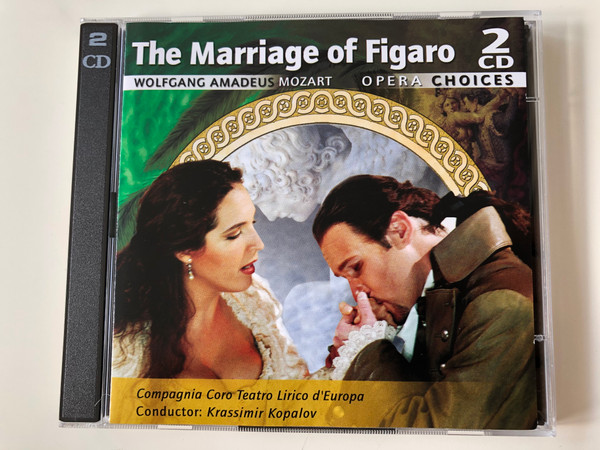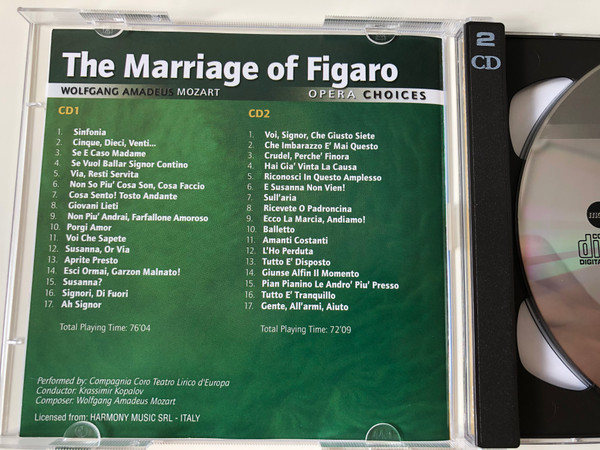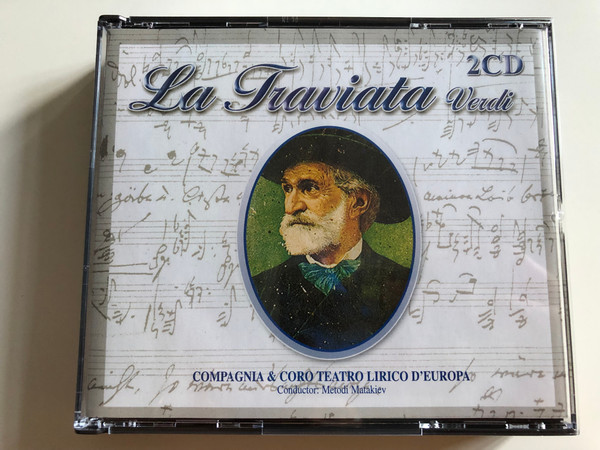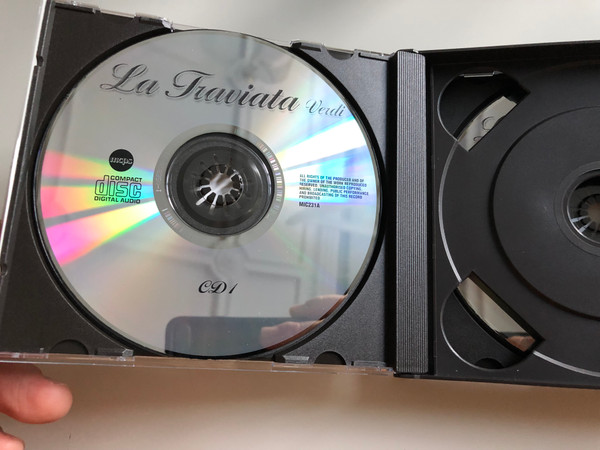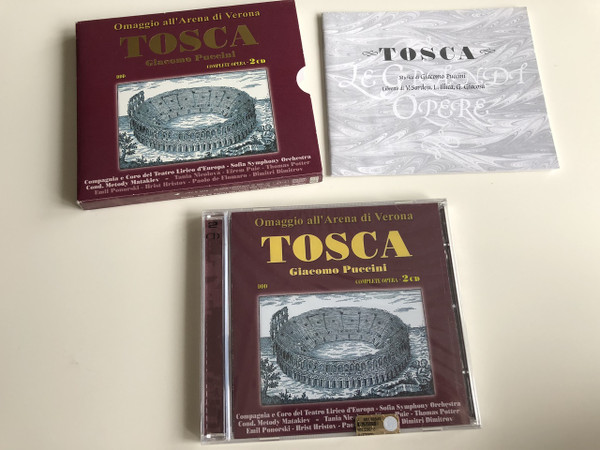Description
Il Trovatore - Giusepe Verdi / Compagnia Coro Teatro Lirico d' Europa, Conductor: Giorgio Notev / Opera Choices 2x Audio CD 2006 / OC202
UPC 8717423034360
Product Details:
Tracklist:
CD 1
1. All'erta! All'erta! All'erta!
2. Abbietta Zingara
3. ECredenza
4. Che Piu' T’Arresti?
5. Ascolta
6. Di Tale Amore
7. Tace La Notte!
8. Deserto Sulla Terra
9. Di Geloso Amor Sprezzato
10. Verdi! Le Foche Notturne Spoglie
11. Stride La Vampa
12. Soli Or Siamo
13. Non Son Tuo Figlio
14. Mal Reggendo All'Aspro Assalto
15. Ma Nell'Alma Dell'Ingrato
16. L'Usato Messo Ruiz Invia!
17. Perigliarti Ancor Languente
18. Tutto E' Deserto
19. H Balen Del Suo Sorriso
20. Per Me Ora Fatale
21. Ah! Se LError T'Ingombra
22. Deggi'lo Volgermi A Quei
23. E Questo Un Sogno, Un Estas
CD 2
1. Or Co' Dadi, Ma Fra Poco
2. Squlli, Echeggi La Tromba Guerriera
3. In Braccio Al Mio Rival
4. D'Una Zingara E' Costume
5. Giorni Poveri Vivea
6. Ah... Deh... Rallentate, O Barbari
7. Quale D'Armi
8. Ah Si Ben Mio
9. Di Quella Pira
10. Siam Giunti
11. D'Amor Sull'Ali Roses
12. Miserere
13. Udiste?
14. Mira D'Acerbe Lagrime
15. Conte Ne Cessi?
16. Vivra'! Contende Il Giubilo
17. Madre Non Dormi
18. Un Giorno
19. Si, La Stanchezza M'Opprime
20. Ai Notre Monti
21. Che...Non M'Inganna Quel Fioco Lume
22. Ti Scosta!
23. Prima Che D'Altri, Vivere
-
Conductor - Giorgio Notev
About Verdi:
Giuseppe Fortunino Francesco Verdi 9 or 10 October 1813 – 27 January 1901) was an Italian opera composer. He was born near Busseto to a provincial family of moderate means, and developed a musical education with the help of a local patron. Verdi came to dominate the Italian opera scene after the era of Vincenzo Bellini, Gaetano Donizetti, and Gioachino Rossini, whose works significantly influenced him.
In his early operas, Verdi demonstrated a sympathy with the Risorgimento movement which sought the unification of Italy. He also participated briefly as an elected politician. The chorus "Va, pensiero" from his early opera Nabucco (1842), and similar choruses in later operas, were much in the spirit of the unification movement, and the composer himself became esteemed as a representative of these ideals. An intensely private person, Verdi, however, did not seek to ingratiate himself with popular movements and as he became professionally successful was able to reduce his operatic workload and sought to establish himself as a landowner in his native region. He surprised the musical world by returning, after his success with the opera Aida (1871), with three late masterpieces: his Requiem (1874), and the operas Otello (1887) and Falstaff (1893).
His operas remain extremely popular, especially the three peaks of his 'middle period': Rigoletto, Il trovatore and La traviata, and the 2013 bicentenary of his birth was widely celebrated in broadcasts and performances.
